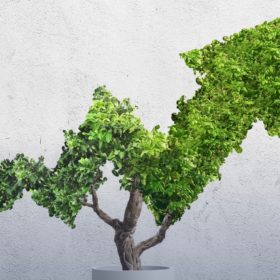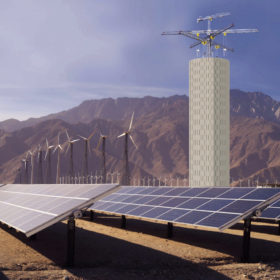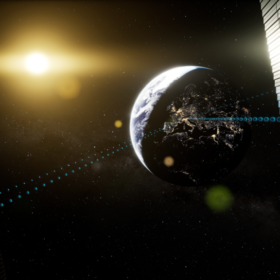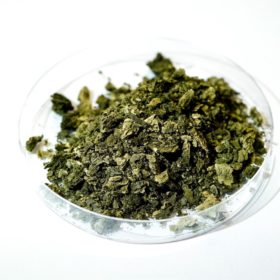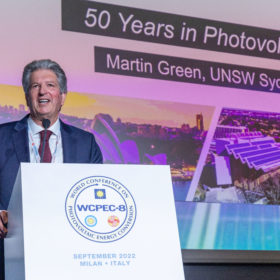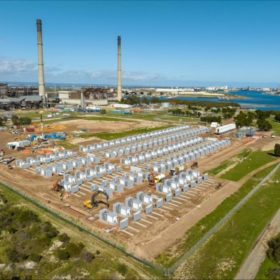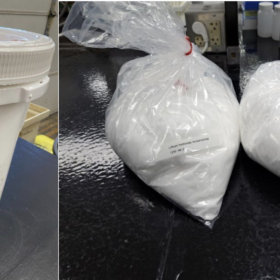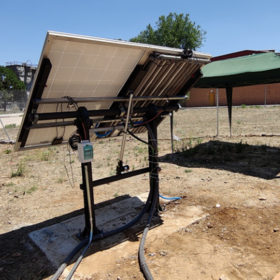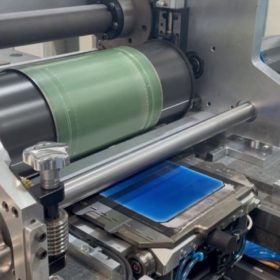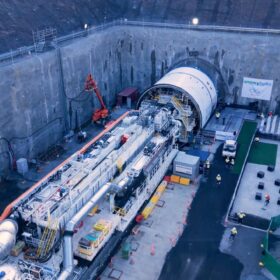Latest advances in sodium-ion battery research
Qingdao University researchers have synthesised high-performance titanium dioxide-based anode materials with excellent cycling stability, while German scientists have used operando techniques to observe how solvated sodium ions embed themselves in electrodes.
Report finds sustainability skills gap in Australian financial sector
The University of Technology Sydney’s (UTS) Institute for Sustainable Futures (ISF), in collaboration with the Commonwealth Scientific and Industrial Research Organisation (CSIRO) Climate Science Centre, has published the findings of its national “Climate Skills Survey” of financial professionals.
Proposed 330 MW Victorian solar farm opts for 500 MWh Swiss battery
Swiss energy storage company Energy Vault has been awarded the contract to supply the in development 330 MW Meadow Creek Solar Farm in Victoria with a 250 MW/500 MWh battery energy storage system.
Space-based solar power for terrestrial energy needs
The Cassiopeia solar project aims to use the sunlight collected by a space satellite for terrestrial energy needs. The electricity generated would be converted to radio frequency microwave radiation transmitted to an antenna on Earth. The initial LCOE would be $73.4 (USD 47.8)/MWh, according to a UK study.
Algae could boost solar panel efficiency by 4%
A Swedish team has inaugurated a pilot facility to mass produce algae material that can potentially boost silicon solar module efficiency by 4% and thin film by 36%. The algae are added to the encapsulant in silicon-based modules or to the anti-reflective coating on the glass of thin film modules. The team estimates the resulting modules would be 3.9% cheaper.
UNSW’s Martin Green picks up $1.5 million Millennium Technology Prize
Australian research that has seen crystalline silicon (c-Si) PV technology takes its place in the mainstream of the global energy industry has been recognised by picking up Finland’s top technology award. The €1 million (AUD 1.55 million) Millennium Technology Prize has been awarded to UNSW Scientia Professor Martin Green, in recognition for his work in developing passivated emitter rear contact (PERC) technology – the mainstay cell of the modern solar industry.
Thermal batteries to power gas-plant steam turbines subject of $1 million feasibility study
In a project where the old world of energy meets the new, AGL will investigate the technical and financial feasibility of using thermal batteries to provide the steam for a 200 MW turbine at South Australia’s Torrens Island Power Plant, which usually run on gas.
Australian company’s novel green lithium concept yields battery-grade product in Germany
ASX-listed Vulcan Energy, a company working on a project in Germany that it says will deliver ‘zero carbon’ lithium by combining geothermal plants with lithium electrolysis, today announced its pilot produced high grade lithium hydroxide which ‘easily exceeds’ battery grade specification.
Underground heat exchanger to cool down solar panels
Spanish scientists have built a cooling system featuring heat exchangers on solar panels and U-shape heat exchangers installed in a borehole at a depth of 15 meters. The researchers claim that this reduces panel temperatures by up to 17%, while improving performance by about 11%.
PV production equipment sales soaring in Europe
According to VDMA, a German engineering association, there are now more orders coming in for German production equipment from Europe than from China. Nevertheless, shipments to Asia remain dominant.
优睿科.jpg-280x265.png)
